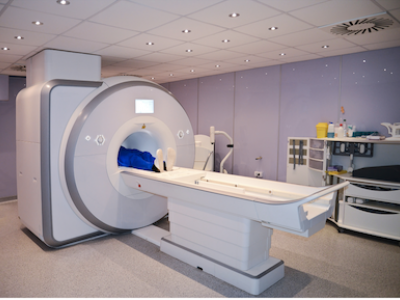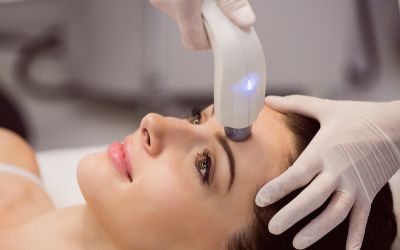List of NewLife Preventive Screens
-
Annual Health Screen
To prevent disease & improve health & well-being
-
Anti-aging Screen:
To make necessary lifestyle changes to slow down aging process
-
Metabolic Screen:
To detect metabolic syndrome and improve metabolism
-
Weight Management Screen:
To detect causes of weight gain and manage weight
-
Food Allergy & Sensitivity Screen:
To detect food allergies and sensitivities & make necessary dietary changes
-
Nutritional Screen:
To provide insights into an individual's nutritional status: Vit. A, D, E, K; Vit. B (9 items); Omega 3, Omega 6; Ca, Zn, Mg, Fe, Fer; Total Protein Levels; Body Composition
-
Nutrient & Toxic Elements Screen:
To identify the presence of harmful substances or heavy metals in the body
-
Gut Microbiome Test:
To check digestion, immune function, metabolism (constipation, digestive problems)
-
Genetic Screen
To screen for genetic disorders & adjust lifestyle
-
Heredity Disease Screening:
To identify the risk of developing certain inherited conditions or diseases and help family planning
-
Cancer Screening
To prevent cancer and intervene on early stages
-
Early Cancer Screening for Digestive System
To detect 5 most common cancers at the earliest stage: Esophageal Cancer, Stomach Cancer, Liver Cancer, Colateral Cancer, Pancreatic Cancer.

Annual Health Screen
An annual health screen is used to detect and prevent or treat acute and chronic diseases, cancer, diabetes, high blood pressure, metabolic disorders, and others. After seeing your annual health screen results, the doctor will advise you on necessary dietary and lifestyle changes to improve your health as well as treatment needed in case a certain illness was detected. The annual health screen should be done every 6-12 months.
Why choose us?
NewLife Clinic provides a personalised approach to each individual and helps a patient choose necessary tests. Moreover, our physicians will provide you with a thorough report explanation in English and suggest necessary follow-up measures.
Screen Includes:
- Doctor's consultation
- Physical Exam and History (ENT, dental, ophthalmology, etc.)
- Surgical Examination
- Laboratory Tests (blood tests, urine, stool)
- Imaging Studies (MRI, CT, ultrasound, mammography, ECG, bone density, etc.)
- Gynecology
- Other tests prescribed by the doctor during the consultation

Anti-Aging Screen
The goal of anti-aging medicine is to promote healthy daily living, improve the quality of life, and thereby achieve longevity. Anti-aging medicine elucidates the mechanism of aging and senescence through a multidisciplinary collaboration of science, determining the degree of aging through an antiaging medical checkup. The early assessment and comparison of biological age and chronological age is an important factor in premature aging. The degree of aging can be assessed by biochemical
and hormonal markers as a sign of immunological stress, oxidative stress, glycative stress, and psychosomatic stress. As we age or indulge in a poor diet and lifestyle, oxidative stress affects our internal organs, skin, and hormonal systems. These result in damage to the body over the long run, which can result in a poor complexion, poor cardiorespiratory function, and even brain function. Early detection of cancer in aging is also important because many cancers are curable if detected at
an early stage. Understanding these factors is important for the implementation of lifestyle therapies including exercise, diet, and the use of supplements in slowing down the clock of life. By elucidating each category below, we can effectively control risks of developing diseases that are due to oxidative stress, poor lifestyle or a nutritional lack.
The tests are divided into three categories, namely:
- Metabolic stress
- Cancer detection
- Possible nutritional and elemental deficiencies.

Weight Management Screen
Weight issues and obesity are one of the most common afflictions in this era, where poor nutritional habits and busy schedules are partly to be blamed. If you have weight issues and have been trying to lose weight without good results, you may be suffering from conditions such as a low metabolism, hypothyroidism, or insulin resistance. Insulin resistance and hormonal dysfunction are by far the most common causes of weight issues in this day and age. When we eat, our insulin rises, especially with sugars and carbs. But, if we keep eating multiple meals a day, our insulin secretion remains high in the blood stream and this causes our body to store fat. This will result in difficulty in weight loss. Most people do not understand that starving causes weight loss but also causes a dramatic drop in metabolism known as the resting energy expenditure.
Testing Method:
Consultation ~ Fasting Blood Test ~ BMI Analysis + 1 set of medications
Metabolic Screen
By understanding the biochemical processes involved in your body and the interplay with certain regulatory hormones, a metabolic screen allows the doctor to fully understand the associated risks and causes of your metabolic issues, thereby allowing for a diagnostic approach to treatment. By testing our metabolic status, we are able to form a predictive assessment of future risk of disorders like ischemic heart disease, type 2 diabetes, and even early dementia. Your risk for heart disease, diabetes, and stroke increases with the number of risk factors you have. The risk of having metabolic syndrome is closely related to overweight issues and a lack of physical activity. Many simple measures can be taken to mitigate such risks, and an early start will always be beneficial to the correction of our metabolic dysfunction. Most scientists now agree that reducing these risk factors will eventually reduce the number of reactive oxygen species (ROS) and interleukins in our body. These cause inflammation and damage to our healthy cells, which in turn lead to unhealthy immune reactions and mutations that cause disease.
Testing Method:
Consultation ~ Fasting Blood Test ~ BMI Analysis
Food Allergy and Sensitivity
Food allergy is an excessive response of the body's immune system to food ingredients or raw materials, usually caused by proteins. The most common food allergens are milk, eggs, peanuts, soybeans, nuts, wheat, fish and crustacean seafood. Food allergy testing is used to help find out if you or your child has an allergy to a specific food. It is mainly used for people who have had symptoms that could be a food allergy. Testing may also be used to see if allergies have gone away over time. Food allergy testing helps to tell whether you have a true food allergy or a food intolerance, or food sensitivity, which may cause similar symptoms. The key difference is that food allergies involve your immune system and can affect your whole body and become life-threatening. Importantly, food intolerance and sensitivity do not become lifethreatening and generally affect only your digestion.
Examples of food intolerances, or food sensitivities, include lactose intolerance, gluten sensitivity, and irritable bowel syndrome. The symptoms may include belly pain, nausea, gas, and diarrhea, which can also happen with food allergies.
Includes:
- Consultation - Blood Test:
- Chronic Food Sensitivity (90 foods)
- Acute Food Allergies
- IgE
A blood test can measure your immune system's response to particular foods by measuring the allergy-related antibody known as immunoglobulin E (IgE).
Tip! Learn about NewLife IV Micronutrient Therapy to balance your amino acids.
Nutritional Screen
It is a laboratory test that measures the levels of individual amino acids in a person's blood, urine, or other bodily fluids. Amino acids are the building blocks of proteins and play crucial roles in various biological processes.The test is typically performed to detect the following:
Diagnosis of metabolic disorders: Amino acid screens can help identify genetic or acquired metabolic disorders that affect the body's ability to metabolize or utilize amino acids properly. Examples of such disorders include phenylketonuria (PKU), maple syrup urine disease (MSUD), and homocystinuria.
Nutritional assessment: Amino acid screens can provide insights into an individual's nutritional status. They can help determine if there are deficiencies or imbalances in essential amino acids, which are obtained through the diet. This information can be useful in guiding dietary interventions or supplementation.
Monitoring treatment: For individuals with known amino acid disorders or those undergoing treatment, regular amino acid screens can help monitor the effectiveness of therapy and ensure that amino acid levels are within the desired range.
Blood Test Includes:
- A, D, E, K; Vit. B (9 items): Omega 3, Omega 6
- Ca, Zn, Mg, Fe, Fer;
- Total Protein Levels;
- Body Composition
Gut Microbiome Test
Gut microbiome testing is used to analyze the composition and diversity of microorganisms that reside in the gastrointestinal tract. The gut microbiome plays a crucial role in various aspects of human health, including digestion, immune function, metabolism, and even mental health. The test helps with:
- Understanding gut health: Gut microbiome testing provides insights into the balance of bacteria and other microorganisms in the gut. This helps understand gut health status and identify any imbalances or potential issues.
- Personalised nutrition and dietary recommendations: The composition of the gut microbiome can influence how our bodies process and metabolize different nutrients. By analyzing the gut microbiome, personalized dietary recommendations can be made to optimize nutrient absorption and overall health.
- Identifying potential health conditions: Research suggests that imbalances in the gut microbiome may be associated with certain health conditions, such as inflammatory bowel disease, obesity, and even mental health disorders. Gut microbiome testing may help identify potential risk factors or provide additional information for managing these conditions.
- Monitoring the effects of interventions: For individuals undergoing dietary changes, probiotic supplementation, or other interventions aimed at improving gut health, gut microbiome testing can be used to monitor the impact of these interventions over time.
Nutrient & Toxic Elements Screening
Nutrients are necessary for the body to maintain basic functions, and deficiency can cause specific functional abnormalities or nutritional deficiency diseases, or even death. There are six types of nutrients that are important for human health: Carbohydrates, Fats, Proteins, Vitamins, Minerals, and Water.Minerals are necessary for the normal operation of human cells. Minerals in whichthe body contains more than 0.01% of body weight are called major element, such as calcium, magnesium, potassium, and etc. The functions of human bones, muscles, heart and brain all depend on these elements. In addition, specific major elements also play an important role as electrolytes: the body uses electrolytes to help regulate nerve and muscle functions and maintain acid-base balance and water balance. If the electrolyte balance is disturbed, disorder will occur. Iron, selenium, copper, zinc, manganese, chromium, vanadium, molybdenum, cobalt and etc. are trace elements that the human body needs in small quantities. Nutrient and toxic elements analysis is a test that detects the levels of nutritional and toxic elements in the hair, analyzes the minerals that can be used in the body as energy metabolism, anti-inflammatory, anti-oxidation, immune function, etc, evaluates the state and balance of nutritional elements in the body, reflects the average level of human toxin exposure in the long-term, also can understand the status of external pollution toxins.
Genetic Screening
A genetic screen is a process used to examine an individual's DNA to identify specific genetic variations or mutations. This analysis can provide valuable information about an individual's genetic makeup and potential risks for certain genetic disorders or conditions. Our doctors will help you choose the right testing option and help make necessary lifestyle modifications to improve the quality of your life and minimise the risk of health problems.
Diagnostic Testing: This type of genetic screen is used to identify the cause of a specific genetic isorder or condition in an individual who is already showing symptoms.
Carrier Testing: Carrier testing is done to determine if an individual carries a genetic mutation that could be passed on to their children. It is commonly performed for conditions such as cystic fibrosis, sickle cell anemia, or Tay-Sachs disease.
Predictive Testing: Predictive testing is used to assess an individual's risk of developing a specific genetic disorder later in life. This type of testing is often done for conditions like certain types of cancer or neurodegenerative disorders.
Pharmacogenetic Testing: Pharmacogenetic testing analyzes an individual's genetic variations to predict how they may respond to certain medications. This information can help healthcare providers personalize treatment plans and optimize medication choices.
Nutrigenomics Testing analyses how specific genetic variations or mutations may interact with dietary factors. By examining an individual's genetic profile and identifying relevant genetic markers, researchers can assess how these variations may impact the response to certain nutrients or dietary interventions. This information can help in tailoring personalized dietary recommendations that take into account an individual's genetic predispositions and optimize their nutritional status.Heredity disease screening, also known as genetic screening or genetic testing, is a process used to identify genetic variations or mutations that may increase the risk of developing certain inherited diseases or conditions. It involves analyzing an individual's DNA to detect specific genetic changes associated with particular diseases.
Heredity Disease Screening
Heredity disease screening, also known as genetic screening or genetic testing, is a process used to identify genetic variations or mutations that may increase the risk of developing certain inherited diseases or conditions. It involves analyzing an individual's DNA to detect specific genetic changes associated with particular diseases
Genetic screening can beperformed for various purposes, including:
Carrier screening: This type of screening is done to identify individuals who carry a gene mutation for a specific genetic disorder. It helps determine the risk of passing on the condition to their children.
Prenatal screening: It is conducted during pregnancy to assess the risk of certain genetic disorders in the fetus. This can involve non-invasive tests, such as blood tests or ultrasound, or more invasive procedures like amniocentesis or chorionic villus sampling.
Predictive screening: This type of screening is used to determine an individual's risk of developing a specific genetic condition later in life. It can help with early intervention, monitoring, or lifestyle modifications.
Important! This test is highly beneficial for people planning their future family.
Cancer Prevention Screen
Cancer screening is looking for cancer before a person has any symptoms. It is important to remember that when your doctor suggests a screening test, it does not always mean he or she thinks you have cancer. Screening tests are done when you have no cancer symptoms. NewLife Clinic's Early Cancer Screen follows the concept of many countries' national healthcare policieswith regards to early cancer detection. It takes a comprehensive and accurate approach in assessing risk as well as finding potential issues that may represent early cancer. Based on your personal and family risk profile, our doctors will discuss a screening plan through a shared and informed decision-making process.
Physical Exam and History: An exam of the body to check general signs of health, including checking for signs of disease, such as lumps or anything else that seems unusual. A history of the patient's health habits and past illnesses and treatments will also be taken.
Laboratory Tests: Medical procedures that test samples of tissue, blood, urine, or other substances in the body.
Imaging Procedures: Procedures that make pictures of areas inside the body. Note! Colonoscopy & Endoscopy are also available.
Genetic Tests: A laboratory test, in which cells or tissue are analyzed to look for changes in genes or chromosomes. These changes may be a sign that a person has or is at risk of having a specific genetic risk of various cancers.
Important! Your annual health screen and cancer screen can be done simultaneously, after discussing with the doctor.
Early Cancer Screening for Digestive System
To detect 5 most common cancers at the earliest stage: Esophageal Cancer, Stomach Cancer, Liver Cancer, Colateral Cancer, Pancreatic Cancer.
Multigene methylation detection technology is an advanced molecular approach used in the early detection and diagnosis of digestive system cancers, particularly through a method known as Cancer-Hematologic Molecular Endoscopy (CHME). Here’s how this technology can be applied:
Principle of Multigene Methylation Detection:
Methylation is a chemical modification of DNA that can regulate gene expression. In cancer, abnormal methylation patterns can silence tumor suppressor genes or activate oncogenes. Multigene methylation detection technology analyzes these methylation patterns in multiple genes associated with cancer development.
Application in Digestive System Cancers:
Colon Cancer: This technology can identify methylation changes in genes associated with colorectal cancer, allowing for early detection through non-invasive tests like stool samples or blood tests.
Esophageal Cancer: It can detect methylation changes in genes linked to esophageal cancer, aiding in early diagnosis through techniques like endoscopic brushings or biopsies.
Stomach Cancer: Detecting methylation changes in genes relevant to gastric cancer can facilitate early detection through methods such as gastric fluid analysis or tissue samples.
Liver Cancer: Multigene methylation detection can identify methylation patterns indicative of liver cancer, particularly useful in high-risk populations with chronic liver disease.
Pancreatic Cancer: In pancreatic cancer, detecting methylation changes in key genes can assist in early diagnosis through pancreatic fluid analysis or tissue biopsies.
Advantages:
- Sensitive and Specific: Multigene methylation detection technology can detect cancer-specific methylation changes with high sensitivity and specificity, potentially allowing for early detection before symptoms appear.
- Non-invasive: Many applications of this technology involve non-invasive or minimally invasive methods, reducing patient discomfort and risk.
- Personalized Medicine: It supports personalized medicine approaches by identifying specific molecular profiles associated with different types of digestive system cancer.
Multigene methylation detection technology is a promising advancement in the early detection and management of digestive system cancers by analyzing molecular changes associated with cancer development. Its application holds potential for improving outcomes through earlier diagnosis and personalized treatment strategies.
Preventive Medicine
At NewLife Clinic, we prioritize preventive medicine to ensure your long-term health and well-being. Our comprehensive preventive care services include:
Vaccination Advice
We provide expert advice on vaccinations tailored to your individual health needs and travel plans. Whether you're preparing for international travel or need routine vaccinations, our healthcare professionals will guide you through the process.
Travel Medicine
Our travel medicine services are designed to help you stay healthy while traveling abroad. We offer personalized travel health consultations, recommendations for vaccinations and medications based on your destination, and advice on preventing travel-related illnesses.
Preventive Screens
We offer a range of preventive screenings to detect health issues early and promote proactive health management. Click to find out more:
Our goal is to empower you with the knowledge and tools needed to maintain optimal health and prevent future medical problems. Whether you're due for routine screenings, planning a trip abroad, or seeking vaccination advice, NewLife Clinic is here to support your preventive health needs.
Our Services

Dermatology
© NewLife Clinic. All rights reserved.
Website by VirtualXone | 苏ICP备19016026号-1
Please turn on your VPN to access the chat.


































